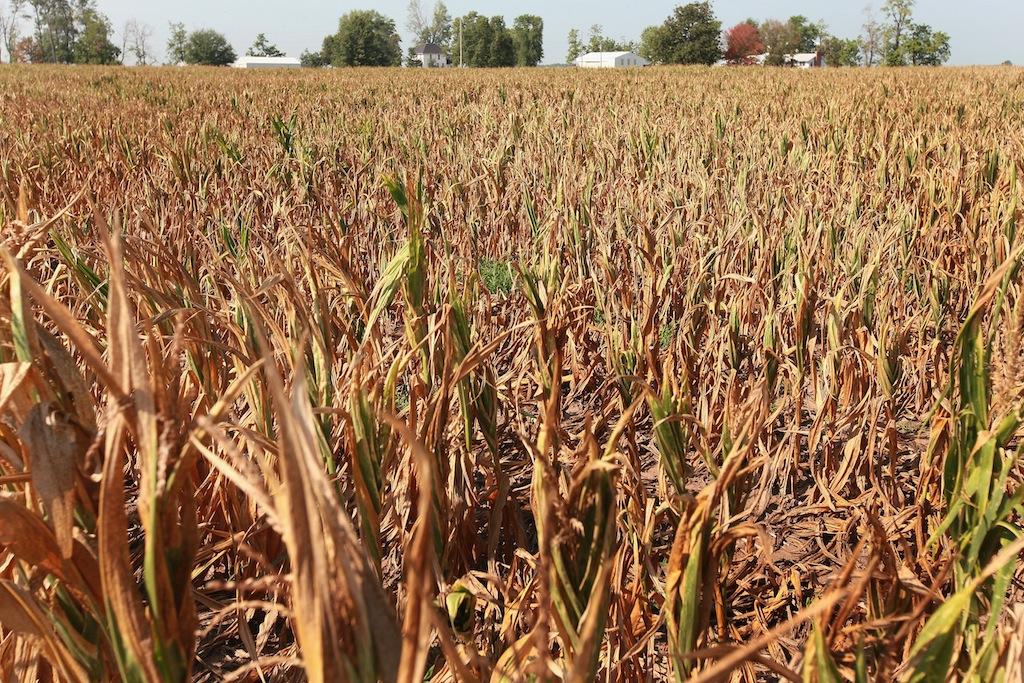Prevent food shortages, eat less meat: report
Corn plants struggle to survive in a drought-stricken farm field on July 18, 2012 near Vincennes, Indiana. The corn and soybean belt in the middle of the nation is experiencing one of the worst droughts in more than five decades. Indiana was the nation’s fourth largest corn producer in 2011.
Want to save the world's water? Stop eating so much meat, say leading water scientists according to a report by the Stockholm International Water Institute.
Currently people get about 20 percent of their protein from animal-based products. After factoring in that projected population numbers estimate that there will be an additional 2 billion people on our planet by 2050, the scientists have concluded that we need to find other sources of protein.
"There will not be enough water available on current croplands to produce food for the expected 9 billion population in 2050 if we follow current trends and changes towards diets common in western nations," said the report, written by Malik Falkenman and colleagues at SIWI.
Instead, Falkenman's report suggests that we'll only have enough water if the "proportion of animal-based foods is limited to 5 percent of total calories" and if we figure out a reliable food system to avoid the regional water deficits.
SIWI isn't the only organization to emphasize just how much water the livestock industry consumes. In June, a report by the United Nations also emphasized that meat production consumes most of the world's water supply. (The Vegetarian Resource Group breaks down how exactly the livestock industry uses up large quantities of freshwater here).
That's why the SIWI report suggests that we should adopt a vegetarian rich diet. The Guardian reported:
Animal protein-rich food consumes five to 10 times more water than a vegetarian diet. One third of the world's arable land is used to grow crops to feed animals. Other options to feed people include eliminating waste and increasing trade between countries in food surplus and those in deficit.
There's a few other problems with today's food security though: Nine million people a year are unable to pay to feed themselves, Oxfam reports, and it's about to get much worse; severe droughts in the US and Russia and weak monsoons in Asia, have caused global prices for corn and wheat to rise almost 50 percent since June of this year.
How else with the US drought affect the world? Read GlobalPost's in-depth coverage here.
The story you just read is available to read for free because thousands of listeners and readers like you generously support our nonprofit newsroom. Every day, the reporters and producers at The World are hard at work bringing you human-centered news from across the globe. But we can’t do it without you: We need your support to ensure we can continue this work for another year.
When you make a gift of $10 or more a month, we’ll invite you to a virtual behind-the-scenes tour of our newsroom to thank you for being with The World.
